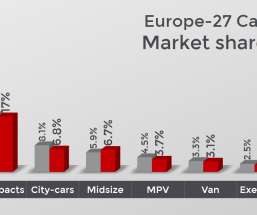EEA: average CO2 emissions from new cars and new vans in Europe increased again in 2019
Green Car Congress
JUNE 27, 2020
EEA said that one reason for the increase in car emissions is the growing share of the sport utility vehicle (SUV) segment. Several factors affected this emission increase, including an increase in the average mass and only a limited increase of the share of electric vans (BEV sand PHEV) from 0.8% g CO 2 /km—0.5 in 2018 to 1.3%











Let's personalize your content